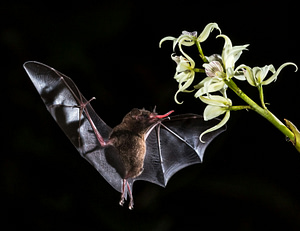Metabolic has formed a partnership with Fashion for Good to help it reshape the fashion industry into a force for positive change.
The fashion business is one of the world’s most socially and ecologically damaging industries. But it doesn’t have to be this way. Fashion for Good is a new global initiative that through innovation and practical action, is convening brands, producers, retailers, suppliers, non-profit organisations, innovators and funders to reimagine how fashion is designed, made, worn, and reused.
Metabolic has formed a partnership with Fashion for Good to support its startup accelerator and mid-maturity incubator programs, as well as its public exhibitions. We’ll also be looking to develop tools and KPIs for circular design that it can use and promote. Fashion for Good will apply our expertise to its ‘Five Goods’, the framework guiding how it aims to promote widespread adoption of good practices – these are Good Materials, Good Economy, Good Energy, Good Water, and Good Lives.
The collaboration builds on Metabolic’s established expertise with textiles and fashion. For C&A – one of Europe’s largest fashion retailers, and whose Foundation has helped to establish Fashion for Good – we produced a comprehensive strategy and roadmap on how to achieve closed material cycles. For another client, we evaluated the potential for increasing used textile collection and recycling in the Netherlands. We have also evaluated the potential for impact reduction and material recovery of proposed product applications from recycled textiles. Most recently, we conducted detailed analyses on how to reduce water, energy, chemical and linen waste in cotton cycles.
Fashion for Good is based in Amsterdam and is open daily with coworking spaces for like-minded organizations and a public ‘Fashion for Good Experience’ – this includes permanent exhibitions, as well as playing host to workshops, events and film screenings. Here are some of Fashion for Good’s fast facts that show clearly why things need to change:
- Fashion is the source of 10% of global carbon emissions, making it the second dirtiest industry in the world.
- More than 80 billion pieces of clothing are produced worldwide each year. Of these pieces, 75% will end up in landfills.
- Documented evidence reveals the existence of child labor in vast numbers at all levels of the supply chain, yet no precise numbers exist.
Metabolic consultant Thomas Mason said: “The world of textiles is one of the largest and most globalised sectors, often involving complex supply chains, and the impact it has on communities and ecosystems is considerable. We are really excited to be applying our knowledge to such an urgent issue with an organization that doesn’t just want to mitigate the worst of these impacts but actually wants to make fashion a force for good.”
For more information and to join the movement, head to fashionforgood.com








